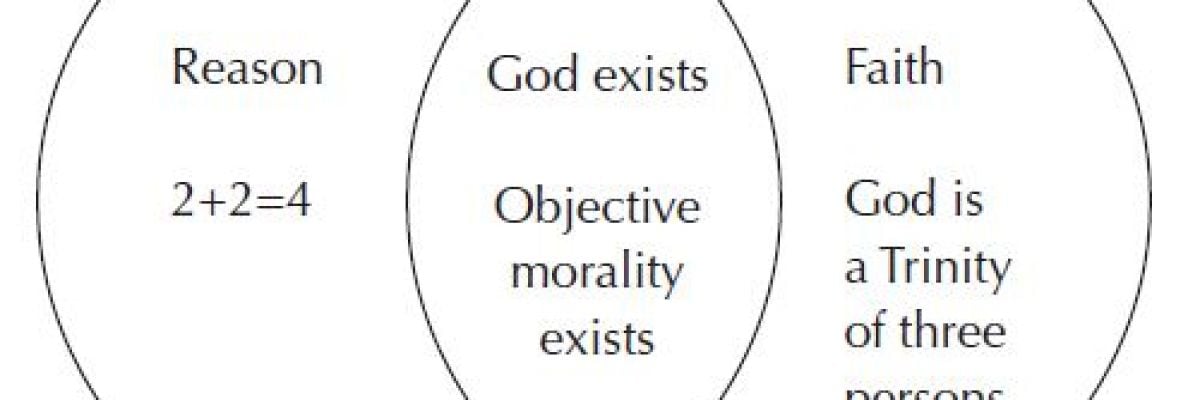
If you want to pique your atheist friends, tell them that their atheism is just a “matter of faith.” They will probably respond that they have the same faith in the non-existence of God as theists have in the non-existence of Santa Claus. So what do atheists mean by the word “faith?”
New atheist Sam Harris writes in his book The End of Faith that “religious faith is simply unjustified belief in matters of ultimate concern.” Other atheists more charitably define faith as “belief in the absence of evidence.”
The Virtue of Faith
According to most traditional Christians, faith is not a belief in spite of or in the absence of evidence. Instead it is, as the Catechism defines it, “the theological virtue by which we believe in God and believe all that he has said and revealed to us” (CCC 1814). Although we live in a culture that equates faith with “blindly accepting something as true,” it may be more helpful to think of faith instead as a kind of “trust” that is based on good reasons.
Most of what we believe is taken on this kind of trusting faith, because as limited human beings we cannot directly research the truth about everything. We need to have confidence (or “faith”) in the authority of teachers, textbooks, maps, schedules, parents, and internet websites, among many other things.
Sometimes this faith is misplaced and we end up believing false things. But if that happens, and if we are presented with good evidence that our beliefs are not true, we simply give up those false beliefs. An atheist might complain that there is a difference in having faith in people and having faith in God. We know people exist because we can experience them with our five senses and can investigate to see if what they say is true. But the same is not true for God whose very existence is disputed.
Faith in Things Unseen
But who says that the only way we can know if something exists is through the use of our five senses? If God existed then he could reveal himself to a human being by causing that person to have an internal awareness of God. If that person does not doubt their sanity, then why shouldn’t they trust this personal experience
Along with this personal, subjective knowledge, the First Vatican Council taught that God can also be known objectively, by reasons accessible to everyone. It said that God “can be known with certainty from the consideration of created things, by the natural power of human reason.” Now, this doesn’t mean that everyone will come to know God by reason, but only that it is possible for anyone to come to know God with certainty in this way.
Faith and Reason
The diagram at the top of this page should help clarify what I mean so far (the inspiration for this came from Peter Kreeft and Fr. Ronald Tacelli’s Handbook of Christian Apologetics).
On the far left, we see that there are some truths (like mathematical truths) that are only known through reason. On the far right, there are other truths that can only be known if they are revealed by God and accepted through faith (like the Christian belief that God is a Trinity). But some truths, those in between the overlapping circles, can be known by either faith or reason. These include the truth that God exists or the truth that some actions are objectively right or wrong.
Both atheists and theists have “faith” in the sense that they believe statements that cannot be proven with absolute certainty. For example, almost everyone believes that the world is not a computer simulation like the Matrix or that the laws of nature that operate today will operate the same way tomorrow.
We don’t carefully reason our way to these truths. They are merely assumptions we think are true because they just appear to be true. But calling belief in these basic truths “faith” would stretch the meaning of the word beyond recognition. Theists have religious faith while atheists have confidence in truths that cannot be absolutely proven.
This blog post is an excerpt from my new book Answering Atheism, arriving this month. To learn more about how to talk to your atheist friends, pre-order your copy today from Catholic Answers Press.



